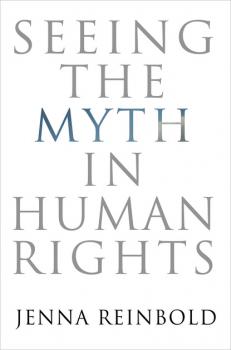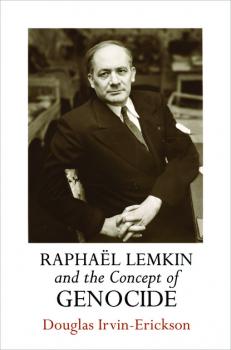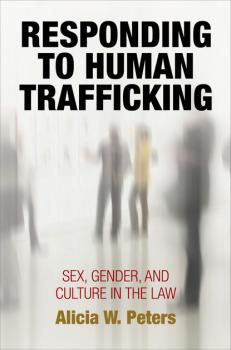Pennsylvania Studies in Human Rights
Скачать книги из серии Pennsylvania Studies in Human RightsSeeing the Myth in Human Rights
The 1948 Universal Declaration of Human Rights has been called one of the most powerful documents in human history. Today, the mere accusation of violations of the rights outlined in this document cows political leaders and riles the international community. Yet as a nonbinding document with no mechanism for enforcement, it holds almost no legal authority. Indeed, since its adoption, the Declaration's authority has been portrayed not as legal or political but as moral. Rather than providing a set of rules to follow or laws to obey, it represents a set of standards against which the world's societies are measured. It has achieved a level of rhetorical power and influence unlike anything else in modern world politics, becoming the foundational myth of the human rights project. Seeing the Myth in Human Rights presents an interdisciplinary investigation into the role of mythmaking in the creation and propagation of the Universal Declaration. Pushing beyond conventional understandings of myth, which tend to view such narratives as vehicles either for the spreading of particular religious dogmas or for the spreading of erroneous, even duplicitous, discourses, Jenna Reinbold mobilizes a robust body of scholarship within the field of religious studies to help us appreciate myth as a mode of human labor designed to generate meaning, solidarity, and order. This usage does not merely parallel today's scholarship on myth; it dovetails in unexpected ways with a burgeoning body of scholarship on the origin and function of contemporary human rights, and it puts the field of religious studies into conversation with the fields of political philosophy, critical legal studies, and human rights historiography. For Reinbold, myth is a phenomenon that is not merely germane to the exploration of specific religious narratives but is key to a broader understanding of the nature of political authority in the modern world.
Benevolent Empire
Stephen Porter's Benevolent Empire examines political-refugee aid initiatives and related humanitarian endeavors led by American people and institutions from World War I through the Cold War, opening an important window onto the «short American century.» Chronicling both international relief efforts and domestic resettlement programs aimed at dispossessed people from Europe, Latin America, and East Asia, Porter asks how, why, and with what effects American actors took responsibility for millions of victims of war, persecution, and political upheaval during these decades. Diverse forces within the American state and civil society directed these endeavors through public-private governing arrangements, a dynamic yielding both benefits and liabilities. Motivated by a variety of geopolitical, ethical, and cultural reasons, these advocates for humanitarian action typically shared a desire to portray the United States, to the American people and international audiences, as an exceptional, benevolent world power whose objects of concern might potentially include any vulnerable people across the globe. And though reality almost always fell short of that idealized vision, Porter argues that this omnivorous philanthropic energy helped propel and steer the ascendance of the United States to its position of elite global power. The messaging and administration of refugee aid initiatives informed key dimensions of American and international history during this period, including U.S. foreign relations, international humanitarianism and human rights, global migration and citizenship, and American political development and social relations at home. Benevolent Empire is thus simultaneously a history of the United States and the world beyond.
Human Rights or Global Capitalism
The fall of communism in the late 1980s and the end of the Cold War seemed to signal a new international social order built on pluralist democracy, the rule of law, and universal human rights. But the window of opportunity for creating this more just, more equal, and more secure world slammed shut just as quickly as it opened. Rather than celebrate the triumph of democracy over autocracy, or political freedom over totalitarian rule, the West exulted in the victory of capitalism over communism. Neoliberal policies of deregulation and privatization that minimized the role of the state were imposed on the transitional societies of Central and Eastern Europe, as well as economically weak and politically fragile nations in Africa, Asia, and Latin America. Twenty-five years later, the world reaps the fruits of that market-driven state foundation: inequality; poverty; global economic, food, financial, social, and ecological crises; transnational organized crime and terrorism; proliferating weapons; fragile states. Human Rights or Global Capitalism is not simply concerned with the success or failure of neoliberal policies per se or judging whether they are good or bad. Rather, it examines the application of those policies from a human rights perspective and asks whether states, by outsourcing to the private sector many services with a direct impact on human rights—education, health, social security, water, personal liberty, personal security, equality—abdicate their responsibilities to uphold human rights and thereby violate international human rights law. Manfred Nowak explores these examples and outlines the ways in which neoliberal policies contravene the obligations of states to protect the human rights of their people.
Genocide
The term «genocide»—"group killing"—which first appeared in Raphael Lemkin's 1944 book, Axis Rule in Occupied Europe , had by 1948 established itself in international law through the United Nations Convention on the Prevention and Punishment of the Crime of Genocide. Since then the charge of genocide has been both widely applied but also contested. In Genocide: The Act as Idea , Berel Lang examines and illuminates the concept of genocide, at once articulating difficulties in its definition and proposing solutions to them. In his analysis, Lang explores the relation of genocide to group identity, individual and corporate moral responsibility, the concept of individual and group intentions, and the concept of evil more generally. The idea of genocide, Lang argues, represents a notable advance in the history of political and ethical thought which proposed alternatives to it, like «crimes against humanity,» fail to take into account.
Raphael Lemkin and the Concept of Genocide
Raphaël Lemkin (1900-1959) coined the word «genocide» in the winter of 1942 and led a movement in the United Nations to outlaw the crime, setting his sights on reimagining human rights institutions and humanitarian law after World War II. After the UN adopted the Convention on the Prevention and Punishment of the Crime of Genocide in 1948, Lemkin slipped into obscurity, and within a few short years many of the same governments that had agreed to outlaw genocide and draft a Universal Declaration of Human Rights tried to undermine these principles. This intellectual biography of one of the twentieth century's most influential theorists and human rights figures sheds new light on the origins of the concept and word «genocide,» contextualizing Lemkin's intellectual development in interwar Poland and exploring the evolving connection between his philosophical writings, juridical works, and politics over the following decades. The book presents Lemkin's childhood experience of anti-Jewish violence in imperial Russia; his youthful arguments to expand the laws of war to protect people from their own governments; his early scholarship on Soviet criminal law and nationalities violence; his work in the 1930s to advance a rights-based approach to international law; his efforts in the 1940s to outlaw genocide; and his forays in the 1950s into a social-scientific and historical study of genocide, which he left unfinished. Revealing what the word «genocide» meant to people in the wake of World War II—as the USSR and Western powers sought to undermine the Genocide Convention at the UN, while delegations from small states and former colonies became the strongest supporters of Lemkin's law— Raphaël Lemkin and the Concept of Genocide examines how the meaning of genocide changed over the decades and highlights the relevance of Lemkin's thought to our own time.
Korea's Grievous War
In 1948, two years before Cold War tensions resulted in the invasion of South Korea by North Korea that started the Korean War, the first major political confrontation between leftists and rightists occurred on the South Korean island of Cheju, where communist activists disrupted United Nations-sanctioned elections and military personnel were deployed. What began as a counterinsurgency operation targeting 350 local rebels resulted in the deaths of roughly 30,000 uninvolved civilians, 10 percent of the island's population. Su-kyoung Hwang's Korea's Grievous War recounts the civilian experience of anticommunist violence, beginning with the Cheju Uprising in 1948 and continuing through the Korean War until 1953. Wartime declarations of emergency by both the U.S. and Korean governments were issued to contain communism, but a major consequence of their actions was to contribute to the loss of more than two million civilian lives. Hwang inventories the persecutions of left-leaning intellectuals under the South Korean regime of Syngman Rhee and the executions of political prisoners and innocent civilians to «prevent» their collaboration with North Korea. She highlights the role of the United States in observing, documenting, and yet failing to intervene in the massacres and of the U.S. Air Force's three-year firebombing campaign in North and South Korea. Hwang draws on archival research and personally conducted interviews to recount vividly the acts of anticommunist violence at the human level and illuminate the sufferings of civilian victims. Korea's Grievous War presents the historical background, political motivations, legal bases, and social consequences of anticommunist violence, tracing the enduring legacy of this destruction in the testimonies of survivors and bereaved families that only now can give voice to the lived experience of this grievous war and its aftermath.
Responding to Human Trafficking
Signed into law in 2000, the Trafficking Victims Protection Act (TVPA) defined the crime of human trafficking and brought attention to an issue previously unknown to most Americans. But while human trafficking is widely considered a serious and despicable crime, there has been far less consensus as to how to approach the problem—owing in part to a pervasive emphasis on forced prostitution that overshadows repugnant practices in other labor sectors affecting vulnerable populations. Responding to Human Trafficking examines the ways in which cultural perceptions of sexual exploitation and victimhood inform the drafting, interpretation, and implementation of U.S. antitrafficking law, as well as the law's effects on trafficking victims. Drawing from interviews with social workers and case managers, attorneys, investigators, and government administrators as well as trafficked persons, Alicia W. Peters explores how cultural and symbolic frameworks regarding sex, gender, and victimization were incorporated into the drafting of the TVPA and have been replicated through the interpretation and implementation of the law. Tracing the path of the TVPA over the course of nearly a decade, Responding to Human Trafficking reveals the profound gaps in understanding that pervade implementation as service providers and criminal justice authorities strive to collaborate and perform their duties. Ultimately, this sensitive ethnography sheds light on the complex and wide-ranging effects of the TVPA on the victims it was designed to protect.
Crimes of Peace
Among the world's hotly contested, obsessively controlled, and often dangerous borders, none is deadlier than the Mediterranean Sea. Since 2000, at least 25,000 people have lost their lives attempting to reach Italy and the rest of Europe, most by drowning in the Mediterranean. Every day, unauthorized migrants and refugees bound for Europe put their lives in the hands of maritime smugglers, while fishermen, diplomats, priests, bureaucrats, armed forces sailors, and hesitant bystanders waver between indifference and intervention—with harrowing results. In Crimes of Peace , Maurizio Albahari investigates why the Mediterranean Sea is the world's deadliest border, and what alternatives could improve this state of affairs. He also examines the dismal conditions of migrants in transit and the institutional framework in which they move or are physically confined. Drawing on his intimate knowledge of places, people, and European politics, Albahari supplements fieldwork in coastal southern Italy and neighboring Mediterranean locales with a meticulous documentary investigation, transforming abstract statistics into names and narratives that place the responsibility for the Mediterranean migration crisis in the very heart of liberal democracy. Global fault lines are scrutinized: between Europe, Africa, and the Middle East; military and humanitarian governance; detention and hospitality; transnational crime and statecraft; the universal law of the sea and the thresholds of a globalized yet parochial world. Crimes of Peace illuminates crucial questions of sovereignty and rights: for migrants trying to enter Europe along the Mediterranean shore, the answers are a matter of life or death.
Medical Humanitarianism
Medical humanitarianism—medical and other health-related initiatives undertaken in conditions born of conflict, neglect, or disaster —has a prominent and growing presence in international development, global health, and human security interventions. Medical Humanitarianism: Ethnographies of Practice features twelve essays that fold back the curtains on the individual experiences, institutional practices, and cultural forces that shape humanitarian practice. Contributors offer vivid and often dramatic insights into the experiences of local humanitarian workers in the Afghan-Pakistan border areas, national doctors coping with influxes of foreign humanitarian volunteers in Haiti, military doctors working for the British Army in Iraq and Afghanistan, and human rights-oriented volunteers within the Israeli medical bureaucracy. They analyze our contested understanding of lethal violence in Darfur, food crises responses in Niger, humanitarian knowledge in Ugandan IDP camps, and humanitarian departures in Liberia. They depict the local dynamics of healthcare delivery work to alleviate human suffering in Somali areas of Ethiopia, the emergency metaphors of global health campaigns from Ghana to war-torn Sudan, the fraught negotiations of humanitarians with strong state institutions in Indonesia, and the ambiguous character of research ethics espoused by missions in Sierra Leone. In providing well-grounded case studies, Medical Humanitarianism will engage both scholars and practitioners working at the interface of humanitarian medicine, global health interventions, and the social sciences. They challenge the reader to reach a more critical and compassionate understanding of humanitarian assistance. Contributors: Sharon Abramowitz, Tim Allen, Ilil Benjamin, Lauren Carruth, Mary Jo DelVecchio-Good, Alex de Waal, Byron J. Good, Stuart Gordon, Jesse Hession Grayman, Jean-Hervé Jézéquel, Peter Locke, Amy Moran-Thomas, Patricia Omidian, Catherine Panter-Brick, Peter Piot, Peter Redfield, Laura Wagner.
Necropolitics
The unmarked mass graves left by war and acts of terror are lasting traces of violence in communities traumatized by fear, conflict, and unfinished mourning. Like silent testimonies to the wounds of history, these graves continue to inflict harm on communities and families that wish to bury or memorialize their lost kin. Changing political circumstances can reveal the location of mass graves or facilitate their exhumation, but the challenge of identifying and recovering the dead is only the beginning of a complex process that brings the rights and wishes of a bereaved society onto a transnational stage. Necropolitics: Mass Graves and Exhumations in the Age of Human Rights examines the political and social implications of this sensitive undertaking in specific local and national contexts. International forensic methods, local-level claims, national political developments, and transnational human rights discourse converge in detailed case studies from the United States, Argentina, Chile, Peru, Spain, Bosnia-Herzegovina, Greece, Rwanda, Cambodia, and Korea. Contributors analyze the role of exhumations in transitional justice from the steps of interviewing eyewitnesses and survivors to the painstaking forensic recovery and comparison of DNA profiles. This innovative volume demonstrates that contemporary exhumations are as much a source of personal, historical, and criminal evidence as instruments of redress for victims through legal accountability and memory politics. Contributors : Zoë Crossland, Francisco Ferrándiz, Luis Fondebrider, Iosif Kovras, Heonik Kwon, Isaias Rojas-Perez, Antonius C. G. M. Robben, Elena Lesley, Katerina Stefatos, Francesc Torres, Sarah Wagner, Richard Ashby Wilson.









